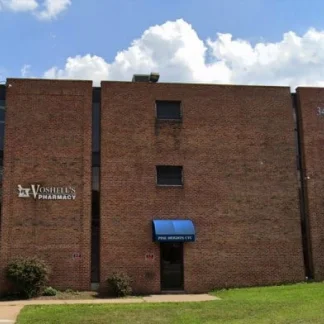The Baltimore Station
The Baltimore Station is an innovative therapeutic residential treatment program...
Pine Heights Treatment Center offers outpatient treatment for individuals with opiate addiction. The program includes medication assisted programs, individual counselling, group therapy and more. Pine Heights Treatment Center is located at Baltimore, Maryland.
Contact us for more information: (844) 319-5842

Connect with Pine Heights Treatment Center by calling their admissions team directly.
(844) 319-5842 Website Get DirectionsThe Commission on Accreditation of Rehabilitation Facilities (CARF) is a non-profit organization that specifically accredits rehab organizations. Founded in 1966, CARF's, mission is to help service providers like rehab facilities maintain high standards of care.
CARF Accreditation: Yes
The National Association of Addiction Treatment Providers (NAATP) is a professional association that represents organizations in the field of addiction services. Founded in 1978, NAATP's mission is to advance addiction services and ensure that high-quality addiction treatment is available and accessible.
NAATP Member: Yes Member ID: 1508
The Substance Abuse and Mental Health Services Administration (SAMHSA) is a branch of the U.S. Department of Health and Human Services. Established in 1992 by congress, SAMHSA's mission is to reduce the impact of substance abuse and mental illness on American's communities.
SAMHSA Listed: Yes
Group therapy is any therapeutic work that happens in a group (not one-on-one). There are a number of different group therapy modalities, including support groups, experiential therapy, psycho-education, and more. Group therapy involves treatment as well as processing interaction between group members.
In individual therapy, a patient meets one-on-one with a trained psychologist or counselor. Therapy is a pivotal part of effective substance abuse treatment, as it often covers root causes of addiction, including challenges faced by the patient in their social, family, and work/school life.
In individual therapy, a patient meets one-on-one with a trained psychologist or counselor. Therapy is a pivotal part of effective substance abuse treatment, as it often covers root causes of addiction, including challenges faced by the patient in their social, family, and work/school life.
The Baltimore Station is an innovative therapeutic residential treatment program...
EPOCH Counseling Center West is a private rehab located in Catonsville, Maryland...
JR Healthcare – Behavioral Health is a private rehab located in Baltimore, Maryl...
Bridge House offers inpatient and outpatient treatment for individuals with alco...